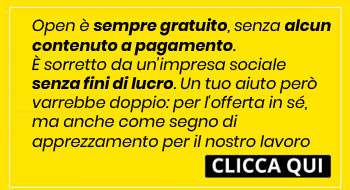On May 13, Pope Francis promulgated the new Basic Law, the Constitution of Vatican City State. The new text of 24 articles supersedes, by repeal, the current text promulgated by John Paul II on November 26, 2000, replacing the first Vatican constitution promulgated by Pope Pius XI on June 7, 1929. was signed.
All references to the Secretariat of State are skipped
The new text contains numerous innovations that will officially come into force on June 7th. The essence is the reduction of the role of the Secretariat of State, headed today by Cardinal Pietro Parolin, which will no longer be involved in the legislative and economic and financial processes and will no longer be the only institutional subject of the Vatican represented in relations with the States and with other subjects of international law. On the contrary, the role of the governor is decisively strengthened today by the will of Pope Francis through the Spanish Cardinal Fernando Vérgez Alzaga, who is also President of the Pontifical Commission – strengthened by the new Constitution, which will be given the legislative function.
 Cardinal Alzaga (left) and Cardinal Parolin (right)
Cardinal Alzaga (left) and Cardinal Parolin (right)
Only the Pope will have “powers of authority.” For others only “functions”
So far, both legislative and economic-financial decisions (primarily the Vatican’s state budget) have been taken by the Pontifical Commission and the Board of Governors, which forwarded them to the Pope “via the Secretariat of State” before promulgation. This formula has been cancelled. Article 6 of the current Constitution on Legislative Power was also repealed, which read: “In matters of major importance, we shall act in consultation with the Secretariat of State.” In the new text, all references to the “powers” of the Secretariat of State, the Governor and the Pontifical Commission. The “powers” now reside exclusively with the pope, while the “functions” are delegated to the various organs: legislative, executive, and judiciary. All three have been profoundly changed compared to the existing one.
The “perimeter” of the Vatican people has been expanded
Among the novelties of the new Constitution is also the extension of the scope of the “Vatican people” inserted in the new Article 5: “Citizens, residents and all who exercise their office for other reasons and with different functions and responsibilities” permanent service to perform in the ecclesiastical spirit for the state or the Holy See. Another novelty in the composition of the Pontifical Commission, which previously consisted exclusively of cardinals appointed by the Pope for five years: religious and lay people, men or women, could also belong to it.
A new budget law in the Vatican as in Italy
The accounts of the Vatican State are also changing, which are now very similar to the budget law of the Italian state: every year, by law, the Pontifical Commission presents the budget, the final balance sheet and the three-year financial plan, which are submitted directly to the Pope without giving more to the State Secretariat. “The budget,” says the new Article 13, “ensures the balance between income and expenditure and is based on the principles of clarity, transparency and correctness”. In addition, the budget – another novelty of the new Article 14 – is subject to the control and verification of a body composed of three members appointed for a term of three years by the Pontifical Commission, to which it reports». Other parts of the Vatican’s new basic charter define in detail the functions of the governorate, which is responsible for all administrative functions, including oversight of cultural heritage (including the Vatican Museums). Finally, the powers of the Pope will be expanded for the judicial function, who, in addition to the – already provided – “amnesty, pardon, amnesty and pardon” will now also have the power to “commute sentences”.
The Rector of the Lateran who inspired the new rules
In an interview with Vatican Radio, Professor Vincenzo Buonomo, Professor of International Law and Rector of the Pontifical Lateran University (who helped draft the new Basic Charter), argued that “with this reform, the principle of adapting Vatican norms has entered the Basic Law to the international obligations of the Holy See to the Vatican City State. I believe that in this case the instrumental function of the state also decreases somewhat. When Pius XI defined this function as important for guaranteeing the freedom and independence of the Apostolic See and therefore also of a territory, then as now it was and still is necessary to be able to act in some way without outside interference”.
The new international rules were accepted, including the green ones
According to Professor Buonomo, the new constitution “takes into account the international aspects also in relation to the responsibilities of the governorate.” The law defines some exclusive tasks of the governorate, which are tasks that only the governorate can perform, and also do with reference to international rules. Safety, environmental protection, economic activities, the protection of artistic heritage, connectivity for example in terms of networks, both from a technical and a commercial point of view, are now fixed and linked to regulations or codes of conduct at international level. All the more there is a desire to standardize and connect with a reality that is a global space that also includes Vatican City State.”
 The flag of Vatican City State
The flag of Vatican City State
 The official coat of arms of the Vatican
The official coat of arms of the Vatican
 The official seal of the Vatican
The official seal of the Vatican
Also read:


